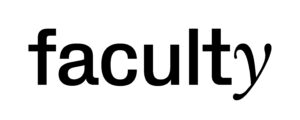PhD in neuroscience
| Junior Data Scientist | |
|---|---|
| Faculty AI | |
Year entered into a non-academic position: 2022
Job highlight:
I like the diversity of projects and skills I am learning, and the fact that I am part of a team working towards a common goal.
Left academia after:
Finishing my PhD
What’s your background?
My background originally was in Biochemistry/Molecular Biology (BSc), followed by an MSc in Neuroscience, and then a PhD in Systems/Computational Neuroscience.
Why did you move away from academia?
I find the work-life balance in industry a lot better. The pay is also a lot more adequate for my level of skills and competence. In addition, the environment is a lot more dynamic and matches my personality better.
I enjoy working on faster projects where you can see the result and impact of your work in a matter of weeks or months rather than years.
Finally, I am opposed to the current scientific publishing model.
Is there anything you miss about academia?
I miss the higher degree of intellectual freedom and being able to dive very deep in a certain topic.
How did you get this job? Did you face any challenges when considering a move away from academia or applying for the role?
I did a fellowship program at Faculty which prepared me well for my current role. I would highly recommend it.
What motivated you to/why did you choose the sector you transitioned into?
I was always interested in the intersection between Neuroscience and Artificial Intelligence. I think AI is currently developing very fast, there is a lot of exciting research and applications. I also really like programming. So it was a natural move for me.
Did you think you had the skills required for your current position before you started? Were you right?
I had most of the technical skills already, e.g., programming, problem solving, a good understanding of machine learning. I lacked some of the business/commercial skills, e.g., stakeholder/client management, project management (most academics are very bad at project management!) and potentially some soft skills too, e.g. working in a larger team. I knew that many of these things could be picked up on the go, which I did, so yes, my expectations were realistic.
How did your PhD prepare you for your current job? For example, what were the transferable skills that you developed during your PhD that are most relevant to your current job?
I would say that a surprising number of skills were transferable, some I already mentioned such as: programming, problem solving, data analysis and statistics, or the ability to read and summarize information easily and quickly. My relevant transferable skills also included softer skills like being able to present work at an appropriate level for a given audience, being able to manage relationships with work colleagues, and to communicate efficiently.
I think most academics underestimate how many of their skills are applicable to industry.
Did you have any preconceptions about your sector that proved to be wrong?
Yes. To name a few:
Myth: Industry jobs are less intellectually stimulating than academia
Reality: Many industry jobs can be just as intellectually stimulating
Myth: Industry jobs are all about making money
Reality: While making a profit is undoubtedly a priority for most companies, it’s not the only goal. Many companies are dedicated to solving actual problems.
Myth: Industry jobs require long work hours and have a poor work-life balance
Reality: Industry jobs with reasonable work hours are (more) common
Myth: Industry jobs don’t offer the same level of autonomy as academia
Reality: While it’s true that industry jobs may have more structure and require more collaboration, many companies offer employees a significant level of autonomy and flexibility. Additionally, industry jobs often provide opportunities for career growth and development that may be harder to come by in academia.
Can you describe a typical week in your job?
I work from 9-5 on most days. It can happen rarely that I must work later, but generally people are very respectful of your time. I work on one or few projects. Much of my time is spent coding or working towards a certain solution. There are meetings with other people too. Usually, for each project there is a short meeting at the beginning of each day called “Daily/Scrum” where we update each other on progress made during the previous day, what we plan to do on the same day and if we have any “blockers” to our work that we need help with. We also have 3 hours every Friday morning that are dedicated to personal development. During this time, we can take courses, read scientific papers or advance our skills in any other way.
What is the workplace culture like? Please include comments on work-life balance, flexibility, remote working?
I am generally very happy with the culture at Faculty. The name of the company is no coincidence and highlights the connection of our company with academia. Many of our employees are former academics (MSc, PhD, Post-doc) from various fields. We have various “clubs”, such as the “Journal club” where we discuss scientific papers or the “AI-and-society-club” where we discuss the relationship between AI and society. Most people are very motivated, curious, inquisitive, and very interesting conversation partners.
My work is intellectually stimulating and exciting (e.g. I have the chance to develop new skills) but the social aspect is also great
The work-life balance is excellent and there are plenty of other activities going on. For example, we have the “Climbing-club” where we go climbing every other week. We also have the “Hike-club” or the “Table-tennis-club”. We regularly do socials such as karaoke, games night, cocktail-night. etc. Our company has very flexible arrangements depending on people’s circumstances, e.g., when it comes to looking after kids, health or accommodation. Remote work is allowed but people come into the office for social interactions and client meetings. I have never felt constrained.
Do people with a PhD frequently get hired in the company/sector?
Yes, many people in “technical” roles (e.g., data scientists or machine learning engineers) have a former background in academia. A big proportion of them come through our fellowship program or get hired directly.
What are your favourite parts of your job?
The interactions with my colleagues. I get very energized talking to other smart people and having a stimulating and fun environment. I also like programming and problem-solving so I am quite happy with the type of work I am doing. The environment is also very dynamic and stimulating.
What are your reflections on your career path?
I wouldn’t necessarily change anything. I did what made sense for me at each career stage.
Do you have any advice for current graduate students and postdocs considering a career outside of academia?
I think you should explore all your options and think carefully about what makes sense for you. A career in academia can be very rewarding and fulfilling. However, being aware of the pros and cons and making a deliberate choice rather than going on autopilot is important in my opinion. The reality is that academia is the “alternative career path” for PhD students if you look at the numbers. Only around 3-5% of PhD students can secure a permanent staff position and only about 0.5% can stay on as professors. Most people end up in careers outside of science or university research (e.g., industry, government, etc.). The numbers are slightly more optimistic for PhDs from the top universities like Oxford, Cambridge, UCL but still low. Think of what other options you have. Even if you want to pursue a career in academia, be very aware of the sacrifices you are making (salary, work-life balance, stability) and the potential benefits. Are you happy with these? Do you have a contingency plan?
What do you know now that you wish you’d known when exploring a transition?
The Faculty fellowship program! This is a great way to make the transition in a relatively pain-free way, without having the big anxieties associated with job search, imposter syndrome and insecurities. Also, your first job doesn’t have to be your dream job. It is much easier to change jobs in industry than in academia and people don’t judge you for it. Don’t be too harsh on yourself. Just make the first step, have bias towards action!
Can you recommend any relevant resources, organisations or events that might help somebody new to the sector find out more about it?
Science-to-Data-Science fellowship program
How I got a job in industry blog post
How scientific startup actually work blog post
Faculty is a leading artificial intelligence (AI) company based in London, UK. The company is dedicated to delivering cutting-edge AI solutions to a wide range of industries, including, healthcare, government, energy and retail. Faculty’s mission is to make AI accessible and useful to all, empowering businesses to leverage the power of AI to solve complex problems and drive growth.
Careers at Faculty
Faculty offers diverse career opportunities for talented individuals, including data scientists, machine learning engineers, software developers, and AI researchers. The company provides a dynamic work environment that fosters collaboration, innovation, and professional growth. To explore current job openings and internships, visit the faculty Join the team page.
Faculty fellowship
Faculty offers internship opportunities for students and recent graduates who are passionate about AI and want to gain hands-on experience in the field. These opportunities provide exposure to real-world projects and allow participants to work alongside experienced professionals. For more information on available internships, visit the Faculty Fellowship page.
Utilization of Researcher Talent
Faculty recognizes the invaluable contributions of researchers in advancing the field of AI. The company actively invests in research and development, employing researchers who contribute to the development of new algorithms, tools, and methodologies. These talented individuals drive innovation within the company and enable Faculty to stay at the forefront of AI technology.
Researchers at Faculty work on various growth areas, such as natural language processing, computer vision, reinforcement learning, and explainable AI. By fostering a research-driven culture, Faculty ensures the continuous improvement of its AI solutions and services, ultimately benefiting its clients and the wider AI ecosystem.






